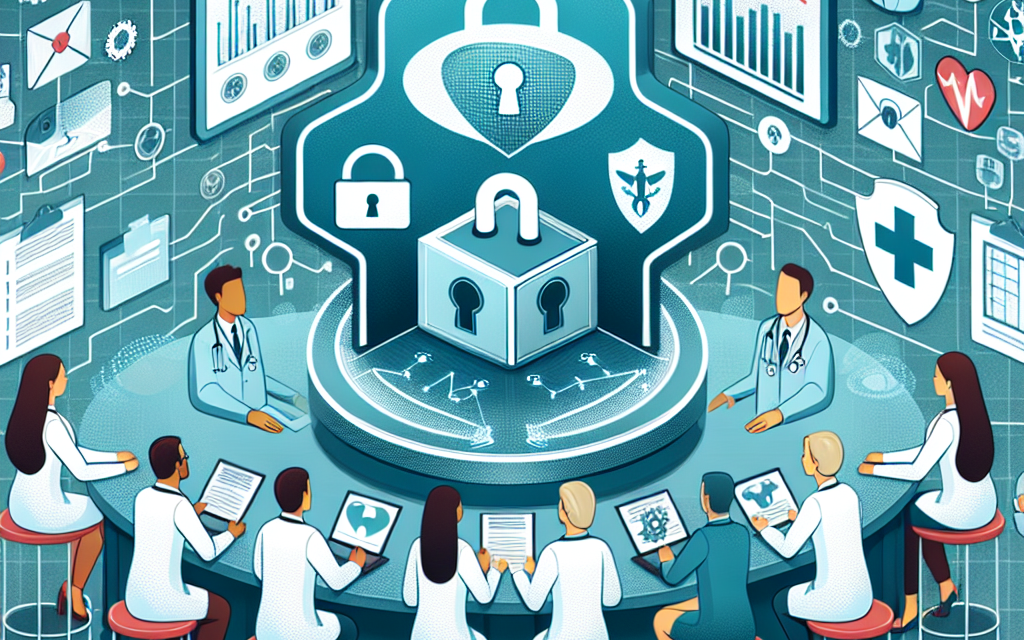HHS Unveils HIPAA Revisions to Enhance Healthcare Cybersecurity
The healthcare sector has increasingly become a target for cyberattacks, with sensitive patient data at stake. In response to this growing threat, the U.S. Department of Health and Human Services (HHS) has announced significant revisions to the Health Insurance Portability and Accountability Act (HIPAA) regulations. These revisions aim to bolster cybersecurity measures within healthcare organizations, ensuring that patient information remains secure. This article delves into the key aspects of these revisions, their implications for healthcare providers, and the broader context of cybersecurity in the healthcare industry.
Understanding the Need for HIPAA Revisions
The healthcare industry has witnessed a dramatic rise in cyberattacks over the past decade. According to the Identity Theft Resource Center, healthcare data breaches accounted for 25% of all data breaches in 2021. The sensitive nature of health information makes it a lucrative target for cybercriminals, leading to identity theft, financial fraud, and unauthorized access to medical records.
Several high-profile breaches have underscored the vulnerabilities within healthcare systems. For instance, the 2015 Anthem breach exposed the personal information of nearly 80 million individuals, while the 2020 Universal Health Services ransomware attack disrupted services across multiple facilities. These incidents have prompted regulators to reassess existing frameworks and implement more robust cybersecurity measures.
The HHS revisions to HIPAA are a response to these challenges, aiming to enhance the security of electronic protected health information (ePHI) and ensure that healthcare organizations are better equipped to defend against cyber threats.
Key Revisions to HIPAA Regulations
The recent revisions to HIPAA regulations introduced by HHS encompass several critical areas aimed at strengthening cybersecurity protocols. These changes include:
- Increased Security Requirements: The revisions mandate that healthcare organizations adopt more stringent security measures to protect ePHI.
- Risk Assessment Enhancements: Organizations are now required to conduct more comprehensive risk assessments to identify vulnerabilities in their systems.
- Incident Response Plans: The revisions emphasize the need for robust incident response plans to address potential breaches swiftly.
- Training and Awareness: Healthcare employees must undergo regular training on cybersecurity best practices and the importance of safeguarding patient information.
- Third-Party Vendor Management: Organizations must ensure that third-party vendors comply with HIPAA regulations and maintain adequate security measures.
These revisions reflect a proactive approach to cybersecurity, recognizing that the threat landscape is constantly evolving and that healthcare organizations must adapt accordingly.
Implications for Healthcare Organizations
The revisions to HIPAA regulations carry significant implications for healthcare organizations of all sizes. Compliance with the new requirements will necessitate a reevaluation of existing policies and practices. Here are some key considerations:
- Resource Allocation: Organizations may need to allocate additional resources to enhance their cybersecurity infrastructure, including investing in advanced technologies and hiring specialized personnel.
- Compliance Costs: The costs associated with compliance may increase, particularly for smaller organizations that may struggle to meet the new requirements.
- Legal and Financial Risks: Non-compliance with HIPAA regulations can result in significant legal and financial penalties, making it imperative for organizations to prioritize adherence to the new standards.
- Collaboration with IT Departments: Healthcare providers must work closely with their IT departments to ensure that cybersecurity measures are integrated into daily operations.
- Patient Trust: By demonstrating a commitment to cybersecurity, organizations can enhance patient trust and confidence in their ability to protect sensitive information.
Ultimately, the revisions present both challenges and opportunities for healthcare organizations. While compliance may require substantial effort, the long-term benefits of enhanced cybersecurity are invaluable.
Best Practices for Compliance with HIPAA Revisions
To navigate the complexities of the revised HIPAA regulations, healthcare organizations should adopt best practices that align with the new requirements. Here are several strategies to consider:
- Conduct Comprehensive Risk Assessments: Regularly assess potential vulnerabilities in your systems and develop strategies to mitigate identified risks.
- Implement Strong Access Controls: Limit access to ePHI to authorized personnel only, and utilize multi-factor authentication to enhance security.
- Develop Incident Response Plans: Create and regularly update incident response plans to ensure a swift and effective response to potential breaches.
- Provide Ongoing Training: Conduct regular training sessions for employees to raise awareness about cybersecurity threats and best practices for safeguarding patient information.
- Engage Third-Party Vendors: Ensure that third-party vendors comply with HIPAA regulations and conduct regular audits to assess their security measures.
By implementing these best practices, healthcare organizations can position themselves to meet the challenges posed by the revised HIPAA regulations while enhancing their overall cybersecurity posture.
Case Studies: Successful Implementation of HIPAA Revisions
Several healthcare organizations have successfully implemented the revised HIPAA regulations, demonstrating effective strategies for enhancing cybersecurity. Here are a few notable case studies:
Case Study 1: A Large Hospital System
A large hospital system in the Midwest faced significant challenges in securing ePHI due to its vast network of facilities and employees. In response to the revised HIPAA regulations, the organization undertook a comprehensive cybersecurity overhaul. Key initiatives included:
- Centralized Security Management: The hospital system established a centralized security management team responsible for overseeing cybersecurity efforts across all facilities.
- Regular Training Programs: The organization implemented mandatory cybersecurity training for all employees, focusing on recognizing phishing attempts and safeguarding patient data.
- Enhanced Incident Response Protocols: The hospital developed a detailed incident response plan that included regular drills to prepare staff for potential breaches.
As a result of these initiatives, the hospital system reported a significant reduction in security incidents and improved compliance with HIPAA regulations.
Case Study 2: A Small Healthcare Provider
A small healthcare provider in a rural area faced challenges in meeting the new HIPAA requirements due to limited resources. To address this, the organization partnered with a cybersecurity consulting firm to develop a tailored compliance strategy. Key actions included:
- Risk Assessment Workshops: The consulting firm conducted workshops to help the provider identify vulnerabilities and develop a risk management plan.
- Implementation of Security Technologies: The organization invested in advanced security technologies, including encryption and intrusion detection systems.
- Vendor Compliance Audits: The provider established a process for auditing third-party vendors to ensure compliance with HIPAA regulations.
Through these efforts, the small healthcare provider successfully achieved compliance with the revised HIPAA regulations and enhanced its overall cybersecurity posture.
The Future of Healthcare Cybersecurity
The revisions to HIPAA regulations represent a significant step forward in addressing the cybersecurity challenges facing the healthcare industry. However, the landscape is continually evolving, and organizations must remain vigilant in their efforts to protect sensitive patient information. Here are some trends and considerations for the future of healthcare cybersecurity:
- Increased Use of Artificial Intelligence: AI technologies are being leveraged to enhance threat detection and response capabilities, allowing organizations to identify and mitigate risks more effectively.
- Focus on Interoperability: As healthcare systems become more interconnected, ensuring secure data exchange between organizations will be critical to maintaining patient privacy.
- Regulatory Developments: Ongoing regulatory changes will continue to shape the cybersecurity landscape, requiring organizations to stay informed and adapt their practices accordingly.
- Emphasis on Patient Education: Educating patients about cybersecurity risks and best practices will play a vital role in safeguarding their information.
- Collaboration Across the Industry: Healthcare organizations must collaborate with each other and with government agencies to share information about threats and best practices.
By embracing these trends and remaining proactive in their cybersecurity efforts, healthcare organizations can better protect patient information and navigate the complexities of the evolving threat landscape.
Conclusion
The HHS revisions to HIPAA regulations mark a pivotal moment in the ongoing battle against cyber threats in the healthcare sector. By enhancing security requirements, emphasizing risk assessments, and promoting employee training, these revisions aim to fortify the protection of sensitive patient information. While compliance may present challenges, the long-term benefits of improved cybersecurity are undeniable.
Healthcare organizations must take proactive steps to align with the new regulations, implementing best practices and learning from successful case studies. As the threat landscape continues to evolve, staying informed and adaptable will be crucial for safeguarding patient data and maintaining trust in the healthcare system.
In summary, the revisions to HIPAA regulations are not just a regulatory obligation; they represent an opportunity for healthcare organizations to enhance their cybersecurity posture and protect the sensitive information of millions of patients across the country.





